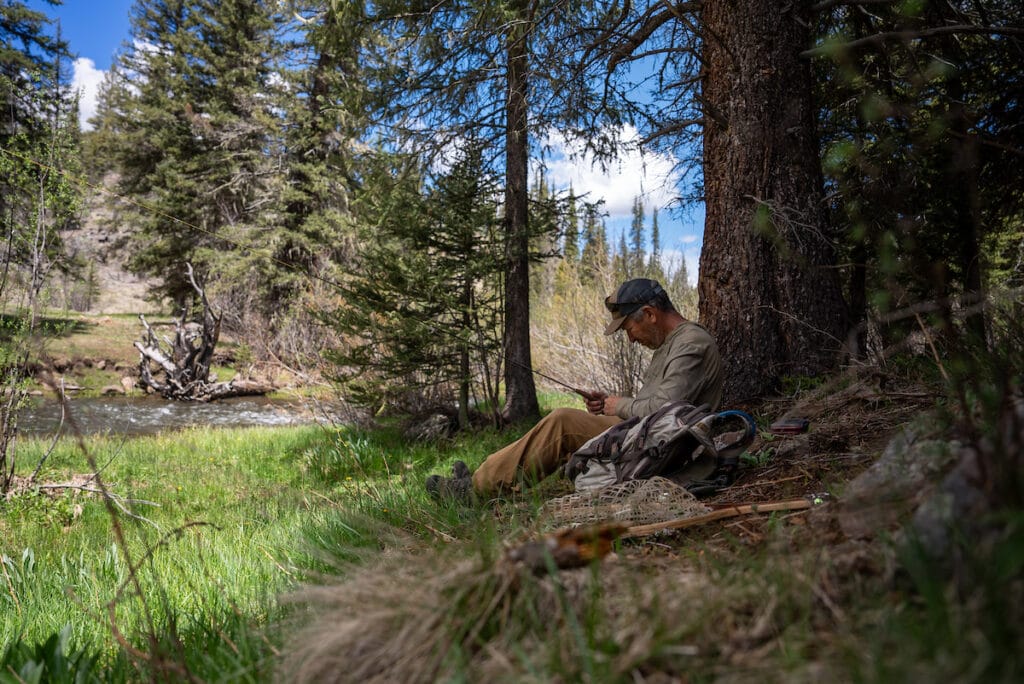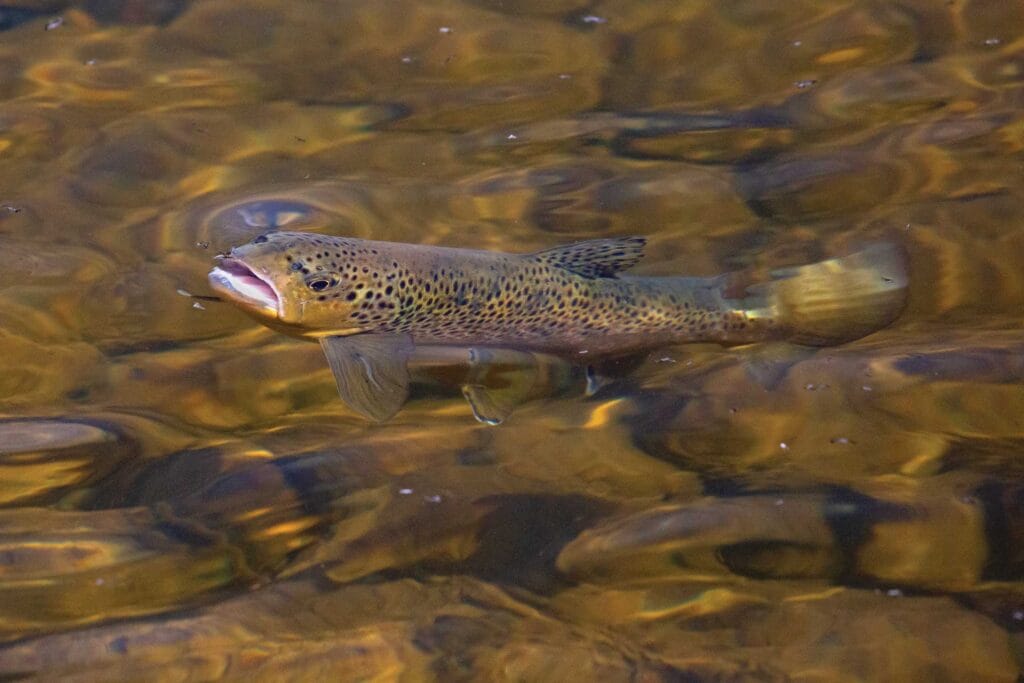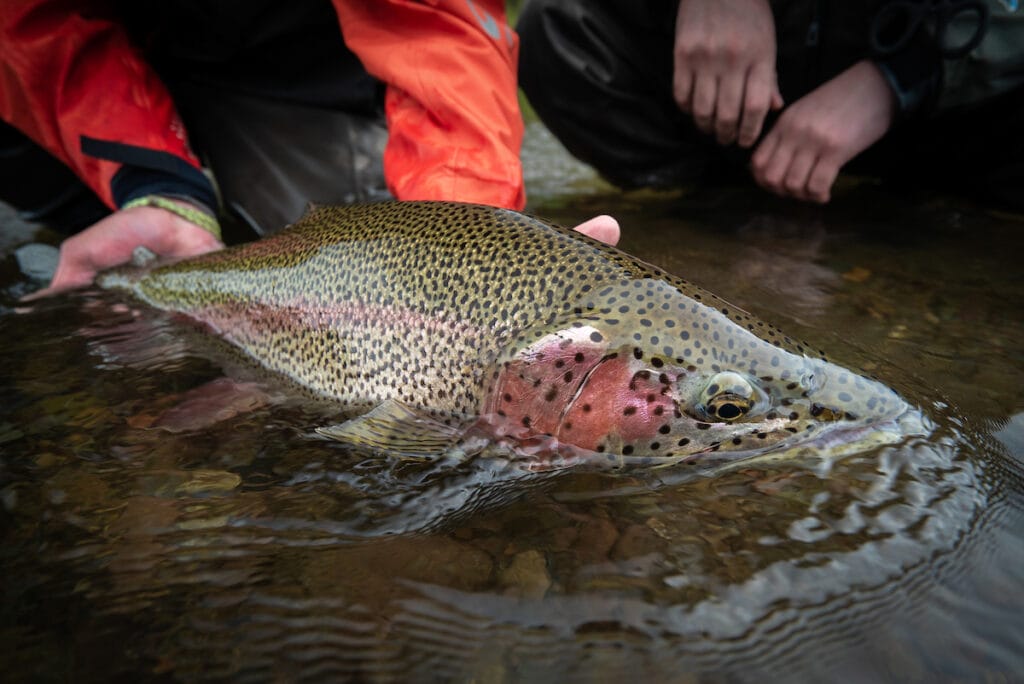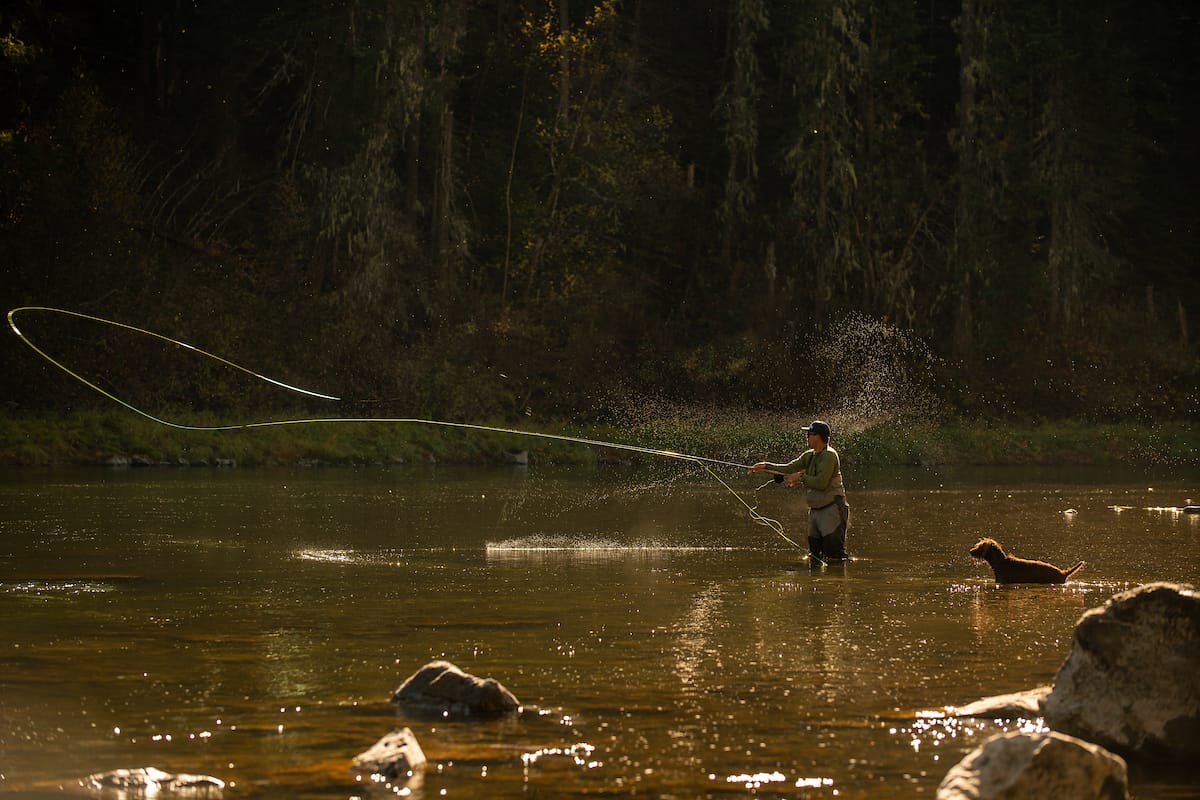They say “patience is a virtue” and I’ve never encountered any situation in this world that better fosters patience than fly fishing for trout.
In many years of fly fishing, including both great successes and dismal failures, I have learned that the number one factor that separates a truly great angler from the rest of the pack is the simple ability to observe. Let the fish themselves dictate how the game might be played instead of barging into the water with an agenda and trying to force one’s own will on the fish.
You may have heard that the “drake hatch is ON!” and that might prompt you to rush down the banks and start firing off casts with almost reckless abandon.

Sure, sometimes that works. In my experience, however, it doesn’t. At least not at a level you might have hoped for.
I’ve learned that, sometimes, just sitting on the bank for a spell (sometimes a few minutes… sometimes an hour or more) and watching the surroundings, absorbing the habits of the river, synching up with the feeding rhythms of the fish, can pay dividends. I’d much rather wade into a river these days with a feel for what the setting has told me what to do, than barge into the currents with a plan I’d cooked up on the drive to the water.
Even when you seemingly do everything the right way, it doesn’t always work. Fly fishing is as much about managing failure and figuring out how to adapt as it is about anything else. If you haven’t failed, well… you haven’t really fished.

And that, in and of itself, can be a great lesson in patience.
You see the big brown trout rising next to the rock, and you make a cast that drops the fly exactly in the zone. You watch the fish tilt upward, inspect your fly and simply shrug it off and say no.
Now… human instinct might tell you to fire a repeat cast to the same place, with the same fly, and that’s exactly what most anglers are inclined to do.
But Albert Einstein told us that the definition of insanity is “doing the same thing over and over and expecting a different result.”
So… be patient.

If you’d let patience take hold. Perhaps you’d tie on a different bug, wait a few minutes until that fish eases back into a comfortable feeding rhythm, and then you’d at least have a legitimate chance on a second go-around.
The thing is, whether or not you actually hook and land that fish, you learn something about patience and life itself.
Maybe the richest rewards don’t happen through instant gratification. Maybe they’re earned.
Maybe when a child makes a mistake, you’re better equipped to show compassion and let them know that what happened is over… what really matters is what happens next.
Maybe you’re more patient with your spouse. Or your colleagues at work.
Maybe, when you fail at something else, you are more apt to pick yourself up, dust yourself off and be more patient.

I’ve been fortunate enough to have many mentors in my fly-fishing life—my father-in-law, Fred Warner, my writing mentors, Charlie Meyers and John Merwin, colleagues like Chris Santella and Conway Bowman, Tom Reed and many others. And you know, they all said the same thing when it came to fishing…
“It’s a marathon… not a sprint.”
The truth is, there are many interesting life lessons one can learn through what might seem to be the trivial act of casting flies at fish that can be transposed to greater effect, beyond the banks of any river.
Perhaps none are more important than the virtue of patience.



